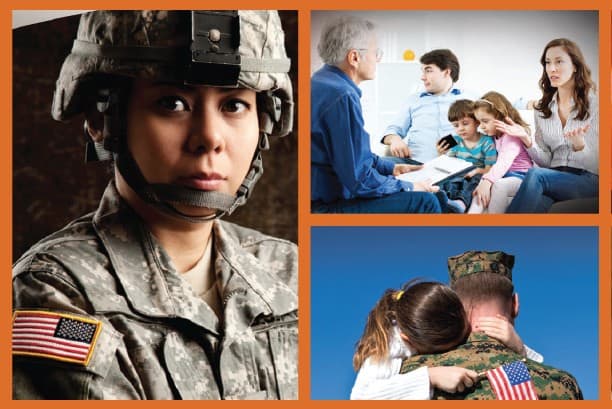After more than a decade at war since the September 11 terrorist attacks, we now face an unprecedented challenge in caring for our military service members. Too often veterans’ spouses and families are left behind. Because Texas has the second-largest veteran population, and will have the largest number of veterans by 2019, Texas should set the standard for how we treat our veterans’ families.
 So how do we exactly do that? In short, we need to address their families’ employment, education and mental health care needs. We must ensure strong community-based programs that are affordable and accessible.
So how do we exactly do that? In short, we need to address their families’ employment, education and mental health care needs. We must ensure strong community-based programs that are affordable and accessible.
Unlike veterans, spouses of veterans do not receive special consideration for employment and education opportunities, yet they deserve them as much as their veteran spouses. Many have delayed higher education or employment, or they have been underemployed, throughout their spouses’ military service because of frequent moves and absences due to training and deployments.
Congress has acknowledged the need for services for veterans’ families but little action has been taken. The House Committee on Veterans‘ Affairs discussed changing the model of veteran care in a 2008 congressional hearing where those who testified recommended that care should focus on the whole family, not just the veteran. But more than seven years later, not much has changed. So, it’s left up to the states and local communities.
It’s true that Texas has set the bar high by helping veterans with higher education access. The Texas Hazlewood Act provides qualified veterans with up to 150 hours of tuition exemption at public higher education institutions in Texas. But, we fall short for veterans’ spouses and children who only receive these benefits if the veteran died in the line of duty or several other qualifying factors. What Texas should do is extend these benefits to all veterans’ immediate family, regardless of the veteran’s death or disability status.
Moreover, this past July, under the Veterans Choice Act, Texas now offers in-state tuition and fees to all veterans using the Post-9/11 GI Bill and Montgomery GI Bills. Given the large numbers of veterans’ families who are moving to Texas to resume their education and pursue new careers, this tuition rate should be extended to their spouses and children as well.
 Another way the state could help is that the Texas Veterans Commission offers veterans much needed employment assistance and training. The state should offer these same supports to military spouses and family members.
Another way the state could help is that the Texas Veterans Commission offers veterans much needed employment assistance and training. The state should offer these same supports to military spouses and family members.
Texas can also do much more to serve the mental health needs of its veterans’ families. State funding for veterans’ mental health services has increased in recent years, but Texas legislators should advocate for additional funding for veterans’ families mental health care – not just for veterans. This funding should not be a “carve out” from nonmilitary populations. To meet increasing numbers of veterans’ and their family members’ care needs, mental health practitioners will need to retool to ensure they are skilled in practices and treatments that meet the specific needs of service members’ families They must become adept in military cultural competency.
The Texas Department of State Health Services has begun to enhance veteran mental health programs through the creation of programs such as the Military Veteran Peer Network. It trains veterans who have recovered from similar health concerns to offer “peer support” to veterans in need, and to help them access mental health care from veteran-friendly clinicians. Programs such as this were developed primarily to support veterans, but they can and should expand to better assist veterans’ families. This is a good first step and communities should organize around developing appropriate resources and building networks that address veterans’ families’ needs.
A much stronger and broader response by Texas communities is needed to embrace our military families for their own service and sacrifice. Broad-based community support is sorely needed locally and at the state level to welcome home military spouses and family members, many of whom have made significant sacrifices, and need support to recover and rebuild. We simply have to do more for military spouses and families when we think of veterans’ care.
By Elisa Borah. Posted November 11, 2015. Versions of this piece appeared in the Houston Chronicle, the McAllen Monitor, the Fort worth Start-Telegram, and the Dallas Morning News. Elisa Borah is a research associate at the Texas Institute for Excellence in Mental Health.


